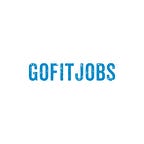Interviews — they can be intimidating and nerve-wracking, but they don’t have to be. With the right preparation and knowledge, you can make sure that your interview goes as smoothly as possible. This blog post will provide some tips on how to prepare for an interview. From researching the company to having a few thoughtful questions ready, we’ll give you insights on how to ace that next big job opportunity!
The different types of interviews
The most common type of expatriate interviews in the fitness industry are the video interview, but you will sometimes be required to attend an in-person interview, particularly if you’re already in the country or attending a fitness recruitment open day. A video interview is conducted using a video conferencing program. These are becoming more popular as they allow employers to save time and money on travel costs.
Sometimes, you will be required to submit a video introduction before you attend an interview, and these are seen as ways to screen suitable candidates.
What to wear to an interview
Assuming you don’t have any specific dress code requirements from your potential employer, err on the side of caution and dress slightly more formally than you would for a normal day at work. This means wearing a suit or nice pants and shirt/blouse for women. You want to look like you’re taking the meeting seriously and that you have respect for the interviewer’s time. This is also true when attending an online interview.
How to answer common interview questions
1. Tell me about yourself.
This is probably the most common interview question out there, and it can be tough to figure out how to answer it. The key is to keep your answer short, sweet, and relevant to the job you’re interviewing for. Avoid rambling on about your entire life story or going off on tangents about your hobbies and interests. Instead, focus on giving a brief overview of your professional qualifications and experience that make you a good fit for the job.
2. Why are you interested in this position?
Again, it’s important to keep your answer concise and focused on the job at hand. The interviewer is looking for evidence that you have done your research and that you understand what the job entails. They want to know that you’re not just applying for any old job, but that you have a genuine interest in and passion for this particular role. So, focus on outlining what it is specifically about the job that appeals to you and why you think you would excel in it.
3. What are your strengths?
When answering this question, don’t be modest! This is your chance to really sell yourself and highlight why you’re the best candidate for the job. Pick a few of your strongest skills or qualities that are relevant to the role and elaborate on how they would benefit the company if you were hired. For example, if you’re applying for a personal trainer position, mentioning that you have excellent people skills, extensive knowledge of biomechanics and are great at selling sessions would be highly relevant.
What not to do in an interview
When you’re in an interview, the last thing you want to do is give the impression that you’re not taking the process seriously. Unfortunately, there are a few things that can easily convey this message, and they’re often things that candidates don’t realise they’re doing. To make sure you’re putting your best foot forward, avoid these missteps:
1. Don’t be late. This one is pretty obvious, but it bears repeating. Showing up late to an interview conveys a lack of respect for both the position and the interviewer.
2. Don’t dress inappropriately. You want to dress in a way that shows you’re taking the interview seriously, but you also don’t want to come across as overdressed or stuffy. Find a middle ground — err on the side of professional but not overly formal.
3. Avoid using filler words. Filler words like “um” or “like” can make you sound nervous or unprepared. Take a deep breath and take your time answering questions — it’ll help you stay calm and focused, and will make you sound more confident as well.
4. Don’t badmouth your current or previous employer. Even if you had a negative experience at your last job, resist the urge to vent about it during an interview. It’ll reflect poorly on you and likely damage your chances of getting the new position.
5. Don’t ask about salary or benefits too early on in the interview. This information (if not already known) will flow naturally as things progress.
How to follow up after an interview
You’ve done it! You’ve aced the interview, asked smart questions at the end, and now it’s time to follow up. But what’s the best way to do it?
The most important thing is to stay in touch with your interviewer and thank them for their time. You can do this by sending a handwritten note, an email, or even a LinkedIn message.
However, don’t stop there! Make sure to keep the lines of communication open in case they have any questions or need clarification on anything from the interview. The last thing you want is to miss out on an opportunity because you didn’t follow up properly!
Conclusion
Interviews can be nerve-wracking, but with the right preparation you can make sure that your performance is top notch. By researching the company and taking time to practice and prepare answers ahead of time, you can ensure that you are well prepared for any questions during the interview. Taking these steps will help to boost your confidence going into an interview so that you can leave a lasting impression on your potential employer.
